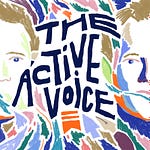It has been 20 years since his groundbreaking book War Is a Force That Gives Us Meaning came out. Its force was so powerful that it was quoted at the start of Kathryn Bigelow’s 2008 film The Hurt Locker: “The rush of battle is often a potent and lethal addiction, for war is a drug.” At the time, Chris was a bureau chief for the New York Times, covering the Middle East and the Balkans, but he quit that position following criticism of a speech he gave denouncing the U.S. invasion of Iraq. He has been publishing in independent media ever since, first at Truthdig and later with an interview show, On Contact, on Russia Today (RT). YouTube wiped out the archives to that show when it removed RT from the platform following Russia’s invasion of Ukraine. “They’re embracing censorship, let’s be clear,” Chris says.
In this conversation, we talk about why journalists like him keep getting drawn to war despite its dangers, why he sides with the suffering (including in his side role as a Presbyterian minister), and what he thinks is wrong with today’s media.
Quotes from the conversation
Becoming a war correspondent
I consciously went to El Salvador. As a freelancer, I only had enough money for a one-way ticket to give voice or to write about those who not only were being denied a voice but were being slaughtered.
On choosing writing over ministry
I’m a writer because I wrote, I mean, since I was a kid. And I actually went to divinity school, because I couldn’t cope with the idea of objectivity and neutrality—that I’m not neutral about suffering, I’m not neutral about injustice.
Reporting from war zones
You get very superstitious as a war correspondent, because anybody who loses complete control and in a situation of combat, you don’t really have control. I would say I had a more heightened sense of paranoia.
The echo of war
I can tell simply by sounds, the caliber of a weapon or a mortar—sniper fire, of course, being the most chilling, because good snipers don’t miss; it’s a very high-pitched kind of crack. You learn to read a battlefield and assess it, but in the end, that doesn’t save you.
On leaving the field
But you can’t cover war forever; it’ll kill you. I mean, it’ll just break you down. And after the war in Kosovo, I realized I had to get out. I wasn’t coping well. I didn’t have the emotional or perhaps even the physical resilience that I had before.
On reporting multiple sides
Power shifts instantly, and I don’t choose sides in that sense. I stand with whatever side that is being crushed. [...] I think that in that sense, a good writer or a good journalist is kind of an internal heretic, always in opposition to power no matter where that center of power lies.
On fellow war reporters
We’re all insane. I mean, normal people wouldn’t do that. That’s why I’m so critical of people who go to war but then they don’t want to leave the hotel. But I think that’s a perfectly rational response.
On today’s journalism
Cable news, CNN, MSNBC, Fox: it’s just burlesque. The print media has atrophied for many reasons, including commercial reasons. [...] Any institution as it dies becomes more reactive, it becomes more fearful, it attempts to sustain itself, it attempts to not anger or alienate the few people it has left. And so it actually accelerates its own decline. And that’s happening in the press.
On writing a book about war
I wrote about the culture of war, what it does to individuals, what it does to societies, what it does to nations. And it was really hard. It was not cathartic. Even now, it’s very hard for me to pick up and read passages of it. It was published by a small publisher.
Writing 14 reported books
I have a lot of contact with, and I teach in, a prison, and I’ve taught long enough that I have a close relationship with my students and their families. So I’m not sitting around Princeton wondering what the oppressed or the underclass is like.
On not being careerist
The career wasn’t the point. I was booed off of a commencement stage for denouncing the war and Rockford College and then lynched by the right-wing media; I think Russian Limbo spent about four days on me. And then the paper issued a formal written reprimand, which said that I couldn’t speak publicly about the war. Now, this is after seven years in the Middle East, months of my life in Iraq; I knew precisely the fiasco it was going to be, as I think every Arabist did. And I wasn’t going to stay at the paper with that.
On holding unpopular opinions
I don’t give a rat’s ass what they think. I don’t care. I mean, and I think that comes out of covering war.
On social media
I’m not on Twitter. I don’t waste my time on Twitter. Someone else runs my Twitter. I’m not on Facebook, I’m not on Twitter, I’m not on any of that stuff.
On reading war reports
You can’t understand the Middle East in a sound bite. You can’t even understand the Middle East from an article in the New York Times. You have to have a historical background, you have to understand Sykes–Picot. You have to understand the 1948 war. You can’t. It’s kind of “world without context.”
On your purpose as a reporter
I come out of the real world, I kind of see it. So in a way, you’re not surprised. I’m not surprised. I’m not disillusioned. I know they always get you in the end. And so my job is to make them as uncomfortable as possible for as long as possible.
On being in touch with mortality
I think the other thing about being in war zones is you’re pretty in touch with mortality. I mean, a lot of people I care the most about are dead. So we’re not going to be here forever, and injustice will outlive us. You fight as long, as hard as you can, and then you hope that somebody else picks up that fight. And I think that’s right.
Independent vs. the mainstream
WikiLeaks publishes this stuff, and all the papers—El Pais, The Guardian, New York Times, Der Spiegel—they all publish it. But I know, because I work there, they hated, always hated Julian, because he shamed them into doing their job. If they didn’t publish it, they would be exposed for who they were, which are essentially organs of the power elite.
On resisting structures of power
I just don’t think that it’s good for our mental health to be supine. I think we have to resist, and we can’t really use the word “hope” if we don’t. But that requires a very accurate and cold reading of the structures of power.
Chris’s recommended read:
From
’s newsletter:Show notes
Subscribe to The Chris Hedges Report on Substack
Find Chris Hedges on Twitter (as explained in the episode, not run by him)
Other writers on Substack Chris recommends:
, , ,[02:05] Navigating war zones (and avoiding being killed)
[04:43] Being taken prisoner in Basra
[5:55] The mental stability of a war correspondent
[06:51] How Chris got into war reporting
[08:40] “You don’t stay lucky forever”
[09:09] Becoming a recluse
[15:19] Writing a memoir
[21:03] The Presbyterian minister
[22:33] The ordination to journalism
[25:47] The state of today’s journalism
[31:33] Why social media sound bites are “world without context”
[33:27] The problem with independent media
[34:06] Mainstream media and WikiLeaks
[36:37] What has happened to our institutions
[37:03] Is there hope?
[40:40] Meeting his wife, Eunice Wong
The Active Voice is a podcast hosted by Hamish McKenzie, featuring weekly conversations with writers about how the internet is affecting the way they live and write. It is produced by Hanne Winarsky, with audio engineering by Seven Morris, content production by Hannah Ray, and production support from Bailey Richardson. All artwork is by Joro Chen, and music is by Phelps & Munro.























Share this post